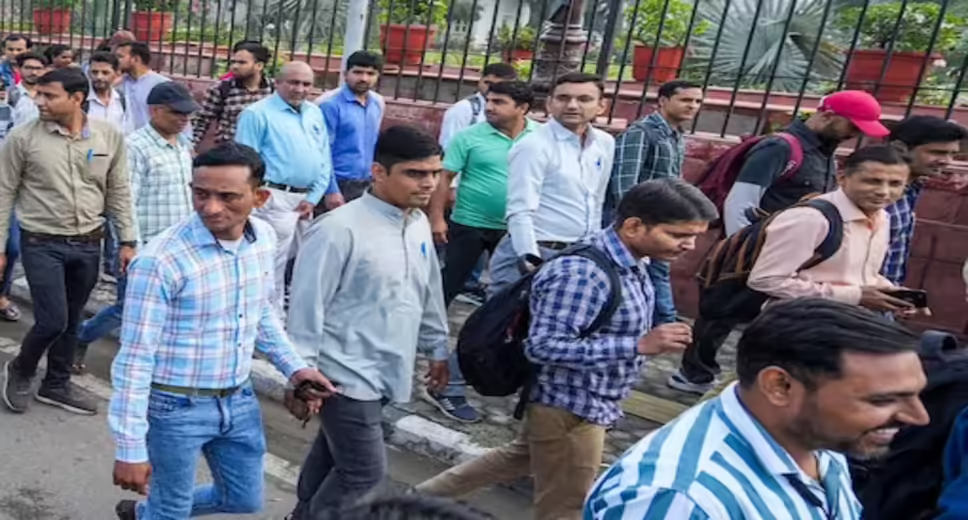UPSC CSAT 2023: 'Demand for Re-exam Not Practically Feasible,' 33% is Standard Passing Marks, Say Experts

Since its introduction in 2011, the Civil Services Aptitude Test (C-SAT) has been enshrouded in controversy. Numerous aspiring candidates for the UPSC (Union Public Service Commission) exams have vociferously called for the removal of CSAT from the UPSC Civil Services Examination (CSE) pattern. These concerns, collectively referred to as the 'Charter Of Demands By UPSC Aspirants,' encompass a range of issues. One prominent demand is the reduction of the qualifying threshold for the UPSC CSE CSAT 2023 from 33% to 23%, or the exclusion of 25-plus questions that deviated from the prescribed syllabus, or even the reconduction of the UPSC prelims exam 2023.
Sumit Rewari, CEO of Physics Wallah and Only IAS, highlighted, "The request to lower the qualifying threshold of UPSC CSE CSAT 2023 from 33% to 23% is a significant one. Nonetheless, it's important to recognize that the 33% benchmark serves as a consistent passing criterion across the Indian education system." Sheetal Bajwa, an aspirant residing in Delhi, echoed this sentiment, emphasizing that 33% is a standardized passing mark uniformly implemented throughout India. Bajwa also noted, "Students often underestimate the importance of UPSC CSAT, approaching the paper with complacency until the approach of February. They focus solely on clearing 27 questions, which ideally should not be the prevailing approach."
Former IRS Officer Ravi Kapoor provided insight, remarking, "The total number of vacancies remains constant, raising questions about the equitable distribution of benefits resulting from a reduced cut-off, vis-à-vis those who have surpassed the cut-off despite the challenging paper this year. Similar issues would arise if the exam were to be reconducted—appearing fair to those unable to meet the cut-off but seemingly unfair to those who have met it."
The aggrieved student body also called for compensatory attempts for candidates affected by the disruptions caused by the Covid-19 pandemic. They sought such provisions for eligible UPSC candidates in the years 2020, 2021, 2022, and 2023. Hemant Kumar, a UPSC aspirant, lamented, "I was unable to sit for the exam due to Covid. I had prepared rigorously and was confident about acing the mains that year." Ayushi, the lead petitioner, shared, "The pandemic prevented many students from appearing for the exam, resulting in wasted attempts. This is why we advocate for a single compensatory attempt for all. Some universities offer age relaxation and extra attempts due to Covid; why not UPSC?"
Sumit Rewari, however, tempered these requests, stating, "Numerous successful candidates also faced similar pandemic-related challenges. While the request is compassionate, it might not be practically feasible to provide additional attempts."
Hindi-speaking UPSC aspirants raised concerns regarding the exam's bias in favor of English-speaking candidates. A Delhi-based aspirant, who opted for the Hindi paper, highlighted the issue of questions being translated from English, stressing the need for separate, accurately prepared questions for Hindi medium students. Ayushi asserted, "CSAT has become a tool for UPSC to disadvantage candidates from humanities, Hindi, and regional language backgrounds, placing them at an unnecessary disadvantage."
Srirangam Sriram, founder of SRIRAM’s IAS, critiqued the language-based selection process, asserting that competence in language shouldn't overshadow qualities like empathy, compassion, and soft skills. He advocated for eliminating language-based components from the UPSC CSE selection process.
Additionally, concerns were raised about the UPSC's age calculation methods and the lateral entry scheme, with aspirants alleging that the latter promotes the privatization and contractualization of civil services.
Ravi Kapoor poignantly encapsulated the sentiment of many aspirants: "When confronted with an elevated difficulty level like that of this year's prelims, candidates felt their hard work had been squandered, as the exam seemed arbitrarily challenging. Regrettably, this year's prelims paper exacerbated feelings of helplessness and betrayal among the aspirant community."
